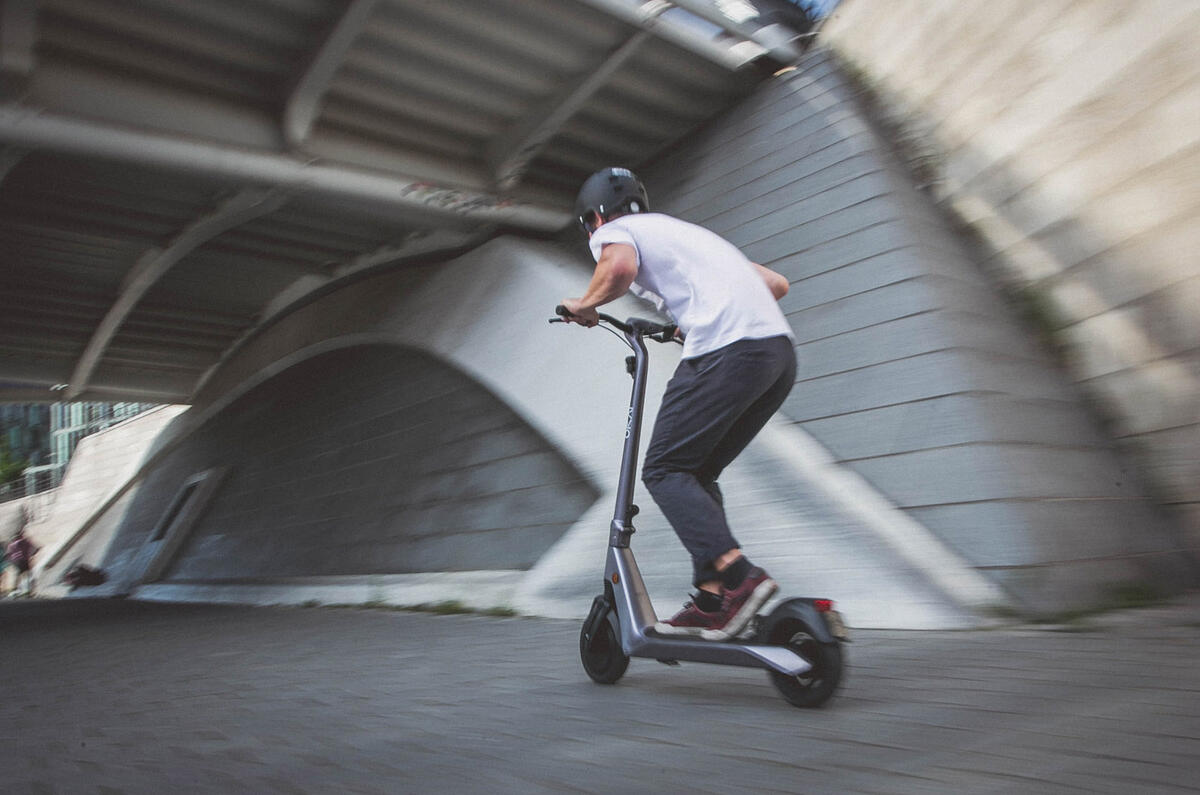Lime, Bird, Flask, Vogo, Grin and Yellow, Skip, Spin… All are multi-million-dollar (or even billion-dollar) companies whose every move is being pored over by car makers desperately appraising what the future of transport actually means.
All are at the heart of the e-mobility revolution, itself a contradiction as it is underpinned by scooters and the bicycles – albeit powered by electricity rather than legs and feet.
The frenzy around these firms has been driven in part by fashion and disruption, because investors love a bit of both. They offer a chance to dismantle the status quo and make fast bucks – and anything that drives down emissions and congestion is also a positive.
Urban e-scooter schemes have caught the zeitgeist. This app-accessible mode of transport has been deemed by users to be cheaper than a cab, less effort than a bicycle and more convenient than a bus. Paris set itself up at the vanguard of the movement in 2018, then its legislators watched in awe and horror as 20,000 e-scooters took over its streets in a manner that one government official described as “anarchic”. Speeding, drink-riding and collisions were rife, plus there was the trip hazard of hastily discarded scooters.
Such was the popularity of the scheme that authorities had to backpedal somewhat, revoking rights of 12 operators and reissuing them to just three, each allowed to provide 5000 scooters as of this year. Best-case predictions suggest mass adoption will reduce traffic by 50% and pollution by 30%, but that remains a target rather than reality.
Momentum among suppliers is building. A market estimated to be worth £15bn today is expected to hit £30bn by 2030, but that feels conservative. In the UK private use remains illegal, but trials of subscription services are under way.
Joining the fray, arguably less controversially, are e-bikes, where human effort is typically supplemented by a battery-powered electric boost. E-bikes are a pandemic success story: 3.7m e-bikes were sold in Europe in 2019, but that figure that rose 23% last year and is set to hit 10m a year by 2024 and 17m by 2030 – at that point a higher figure than new cars sold.
No wonder the car makers are watching closely, and it’s no coincidence that Toyota is remodelling itself as a mobility firm and Volkswagen is pushing itself as a digital one. The price point of e-scooters and bikes may be different but the message is clear: electrification, especially in cities, is set to change far more than how our cars are powered, striking to the heart of transport – and therefore society – itself.
READ MORE
Former Land Rover and Nissan bosses launch electric scooter brand in UK




Join the debate
Add your comment
I think there are even e-skateboards. One passed me one evening when I was walking home through the park with my shopping. The rider was not using his/her legs to propel it and had evidently also been to the supermarket and was now somehow controlling this thing while clutching a full carrier-bag in each hand!
I think the government are dithering whilst trying to work out how they can have a cut of the action.
How can private e scooters be illegal whilst hired versions are OK?
How can e Bicycles be OK (easily converted to higher speeds), but not e scooters.
This is ilogical and nonsensical....no wonder buyers are blatantly ignoring the law... you need public buy-in to be able to administer laws or they will be blatantly broken.
There is statute already in place forbidding riding of bicycles on pavements ..... all you need is to add the word scooters to that, and job done. Administering that rule with limited police presence is another issue.
Helmets are nor enforcable on bicycles so I doubt that they are on scooters, and whether or not they are travelling at more than 15 mph is irrelevant if the owner wishes to risk his life. Even a normal push powered scooter is capable of more than 15 mph - by a long way, and bicycles way more.
Wait till the rain and see how dangerous they are.
Even illegal, they are a problem riding on pavements without helmets and too fast. They need to be registered with identification, and the riders licensed and insured.